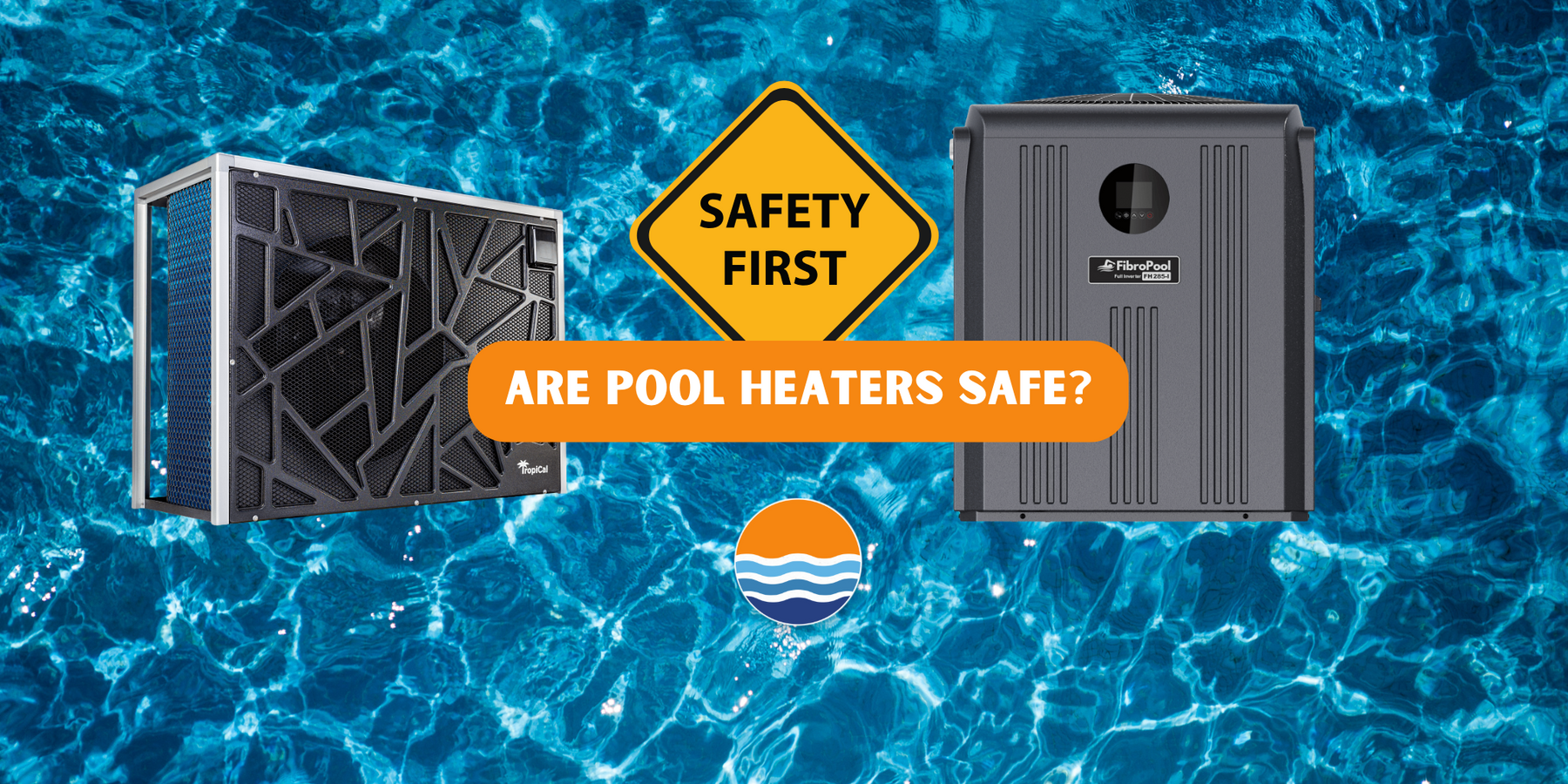
Are Pool Heaters Safe? Understanding the Risks
Understanding Pool Heater Safety: Risks and Prevention
Yes - pool heaters are generally safe if installed and maintained properly.
But like mixing toddlers with espresso, things can go wrong fast without precautions. In this guide, we’ll dive into the types, risks, and smart tips to keep your pool warm and worry-free.
Pool heaters can turn a chilly dip into a cozy swim, but safety isn’t something to overlook. The good news? Most of those risks are easy to manage with a little know-how. Let’s break it down.
Potential Dangers of Pool Heaters
Heating your pool sounds simple. Plug it in, fire it up, and enjoy. But beneath that easy comfort are real hazards if you're not paying attention. Here are the top issues pool owners run into.
Carbon Monoxide Poisoning
Gas heaters burn fuel to warm up your water. But when that combustion doesn’t vent properly, carbon monoxide (CO) can sneak in. It's colorless, odorless, and can be deadly.
This is especially dangerous in tight equipment sheds or covered pool areas. A family in Texas once had their pool heater running inside a half-enclosed space. Everyone felt dizzy - turned out, CO had built up from a blocked exhaust.
How to stay safe:
Always install gas heaters outdoors or in spaces with proper airflow. Check the vent pipes often for nests, rust, or damage.
Fire Hazards
Pool heaters get hot. Add in gas or electricity, and you’ve got a real fire risk if something goes wrong.
One common issue? Storing flammable stuff too close. Think pool toys, towels, even landscaping mulch. A small spark or hot surface could set it all off.
What to do:
Keep at least a few feet of clear space around the unit. Make sure no debris or dry leaves collect near it.
Explosion Risks
Explosions are rare, but they do happen - usually when gas builds up inside the heater and ignites all at once.
This can happen if the ignition system fails or there’s a leak that isn’t detected. It’s a sudden, loud, and dangerous situation.
Prevent it by:
Choosing a model with automatic shut-off and electronic ignition. High-quality units like those on Nonstop Swim are built with these features for extra safety.
Gas Leaks
If you smell rotten eggs or hear a soft hiss near the heater, don’t ignore it. That could be a gas leak, and it's serious.
Leaks usually come from cracked valves, loose fittings, or corroded pipes. Even a small leak can be dangerous if left alone.
Your move:
Shut off the gas supply and call a certified tech immediately. A gas detector in your pool area can also give you an early heads-up.
Risks from Neglect and Malfunctions
Letting your heater sit without maintenance is asking for trouble. Dirt, rust, broken sensors - they can all lead to poor performance or even injury.
One homeowner didn’t notice a corroded heat exchanger until the water started smelling burnt. By then, the damage was done, and the repair bill was huge.
Best tip:
Check your heater monthly during swim season. If something looks off or sounds weird, get it looked at.
Ensuring Safe Operation and Maintenance
Most pool heater problems can be avoided with a few smart habits. Here’s how to use your heater safely without needing to stress over it.
Proper Installation and Ventilation
A heater that’s poorly installed is a ticking time bomb. Bad gas connections, cramped spaces, and blocked vents are common causes of heater accidents.
If you're setting it up yourself, you might miss something small - and that small thing could cost you.
Smart move:
Hire a licensed pro to install it. Always double-check that there's enough space around the unit for air to move freely.
Regular Maintenance and Inspections
Would you drive your car for years without a tune-up? Same logic applies here.
Even the best heaters collect dirt and wear down over time. A clogged filter or dirty burner might not just stop the heat - it could overheat or break the system entirely.
Make it a habit:
Clean the exterior and intake regularly. Schedule a full inspection once a year, especially before heavy use in cooler months.

Recognizing Warning Signs
Pool heaters rarely fail without giving you a few hints. The trick is knowing what to look for - and acting on it fast.
Common red flags include weird smells, strange noises, sudden shut-offs, or water that just won't warm up.
If you notice any of these:
Turn off the heater and get it checked. Better safe than dealing with a repair (or worse).
Staying safe with your pool heater isn’t complicated. It just takes a bit of attention, the right setup, and a solid maintenance routine. With those in place, you’ll be swimming happy - and safely - all year long.
Related reading:


Leave a comment